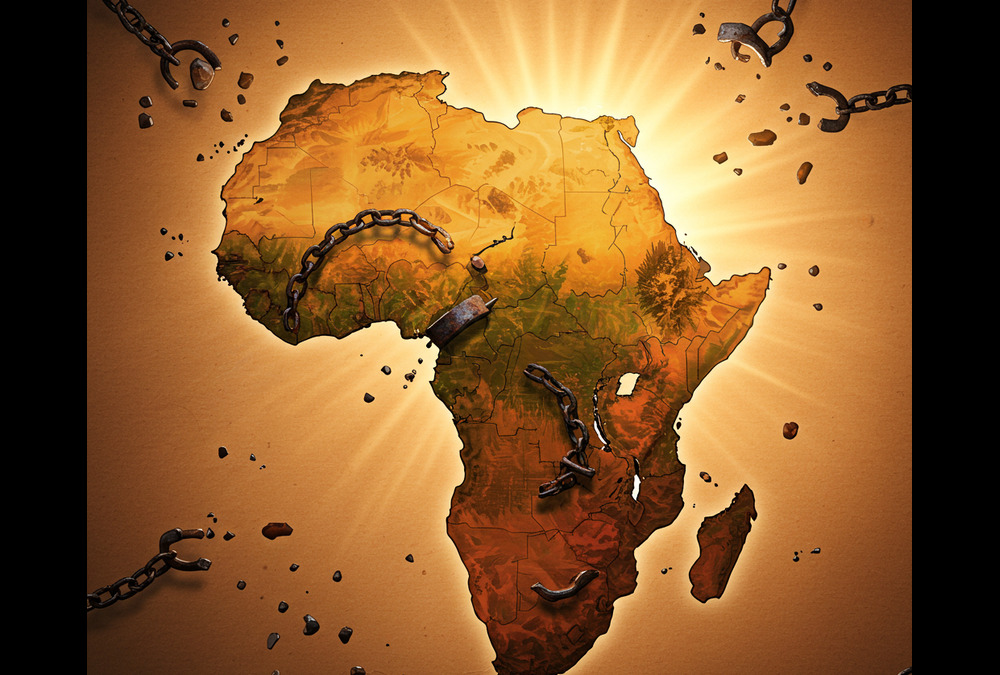Opinion
Redefining Africa’s Future: Moving Beyond Aid Dependency to Self-Reliance and Equitable Partnerships


By Dishant Shah
For decades, Africa has stood as a central recipient of Western aid, with over US$1 trillion in foreign assistance flowing into the continent since 1950. Yet despite these vast financial inflows, Africa continues to wrestle with persistent challenges: entrenched poverty, crumbling infrastructure, and political instability.
This stark reality raises a pressing question: Is Western aid truly fostering sustainable development, or is it perpetuating a cycle of dependency rooted in neocolonial dynamics?
The Strings Attached to Western Aid
Critics argue that the current model of Western aid is less about altruism and more about maintaining influence. Often, this assistance comes bundled with conditions – economic policies or political reforms that recipient nations must adopt.
While framed as measures to ensure accountability, these stipulations frequently undermine national sovereignty, prioritizing donor interests over local needs. For many African nations, such conditions have stifled their ability to chart independent paths to development, reinforcing a power imbalance reminiscent of colonial times.
The consequences are profound. Despite substantial aid, many African countries remain economically tethered to their former colonizers.
This dependency manifests in continued control over economic policies and the extraction of resources under terms that disproportionately favor Western powers. A glaring example lies in the 1980s, when sub-Saharan Africa received net aid equivalent to 10 percent of its GDP.
By 1990, over thirty African nations were still heavily reliant on aid, yet tangible progress in development remained elusive. The numbers tell a sobering story: billions spent, but little structural transformation achieved.
A Different Approach: China’s Rise in Africa
In contrast to the conditional frameworks of Western aid, partnerships with nations like China have taken a markedly different approach. China’s engagement in Africa, particularly through initiatives like the Belt and Road Initiative (BRI), emphasizes large-scale infrastructure development without imposing overt political conditions.
This strategy has yielded significant projects, such as Kenya’s Mombasa-Nairobi Standard Gauge Railway, which has bolstered regional connectivity and stimulated economic growth.
China’s model has sparked both admiration and criticism. Proponents laud its focus on tangible outcomes, while detractors warn of mounting debt and concerns over long-term sustainability.
Nonetheless, the appeal of China’s approach lies in its emphasis on immediate, visible results – a stark departure from the often abstract and conditional promises of Western aid.
Rethinking Development: Toward Self-Reliance and Mutual Growth
The conversation around aid is evolving, and African leaders and citizens are increasingly vocal in advocating for self-reliance. There is a growing recognition that true development cannot be outsourced; it must emerge from within.
This shift in perspective underscores the need for partnerships that respect Africa’s autonomy and prioritize its aspirations.
India’s growing presence in Africa offers a compelling vision for this new paradigm. As a fellow Global South nation with a shared history of colonialism, India understands the importance of equitable and respectful partnerships.
Indian investments in sectors like healthcare, education, information and communication technology (ICT), and agriculture have focused on skill-building and capacity development. Initiatives such as the Pan-African e-Network Project and concessional lines of credit reflect India’s intent to collaborate rather than dominate.
Unlike the conditional frameworks of traditional Western aid, India’s approach is rooted in mutual growth and empowerment.
Charting a New Course
As Africa reflects on its past and looks toward the future, a critical question emerges: Is it time to redefine relationships and forge a new path toward genuine independence and sustainable development? The answer lies in embracing models of partnership that prioritize autonomy, equity, and shared prosperity.
Whether through collaborations with emerging powers like China and India or by fostering intra-African trade and innovation, the continent holds immense potential to drive its own transformation.
The era of aid dependency must give way to one of self-determination. By leveraging its resources, talent, and strategic partnerships, Africa can rewrite its narrative – not as a passive recipient of external largesse, but as an active architect of its destiny.
The choice is clear: Will Africa continue down the path of conditional aid, or will it seize the opportunity to build a future defined by resilience, dignity, and sustainable progress?
Dishant Shah is a partner at Legion Exim, a company specializing in facilitating the export of high-quality engineering products directly sourced from manufacturers in India to Africa. His areas of expertise include new business development and business management.

